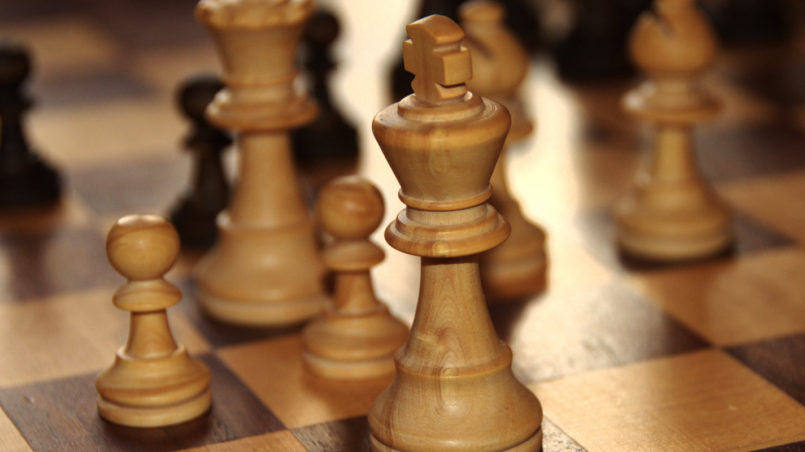Anarchy – The Lost Dignity of Subjects

Since the advent of state entities, thus – depending on the definition – for a few thousand years now, the system has been producing, on the one hand, huge surpluses, on the other hand, mass poverty, bondage, and injustice. Meanwhile, the stronger the orientation towards conquest, or in other words, the more militarized a society is, the crueler its attitude towards the weaker.
It is not only towards the outside that expansion and enslavement are practiced: on the inside, too, the chasm between citizens and the disenfranchised becomes ever more profound and unbridgeable, the more justified the privileged group feels in simply taking from others whatever they like. Where slavery is accepted, it poisons the interactions of all human beings with each other, making us think in terms of levels of power over each other, allowing us to ignore and degrade the lowest social stratum without a guilty conscience.
What this leads to is a system that delegates violence downward and resources upward. This arrangement allows the king to decide over the living circumstances of thousands of anonymous strangers – an entirely different situation from the hierarchy in the animal kingdom (what a misleading phrase indeed), which supposedly serves as the natural model.
In contrast, the dehumanisation and suffering eminent wherever a ruling class emerges, especially when transferred over generations, does not make the downtrodden masses wiser, more empathetic or fairer. It rather leads to slavish surrender towards anyone above and perfidiously acted out hatred and envy in any other direction, as well as a feeling of general powerlessness.
In addition to the cultural pressures of learned behavior, a negative selection right down to our genetic material ensues: ever since sedentarisation and the subsequent emergence of power structures, anyone displaying too much independent thought, uttering criticism, or, worse, calling for solidarity action, did not survive long.
With ever-better military equipment, the ruling class was able to make more and more outrageous demands, knowing that their armored professional soldiers would literally mow down any riots. What remained, inevitably, were the indulgent ones, along with the knowledge that you better beat this attitude into your kids from an early age. (Not only does this prevent trouble with the authorities, it also allows one to exert just a little bit of power over someone even weaker, at least temporarily).
Exactly these characteristics are, of course, the most insurmountable obstacles to a ruler-free functioning society. Primarily, the mere thought was not even tolerated – no matter how despotic princes and kings might have behaved, their alleged birthright was accepted by their subordinates and even defended in anticipatory obedience.
Then and now, cohesion, compassion, and humanity (values that pose a real danger to any tyrannical regime) crumble all the more dramatic, the fewer people are left with to ensure their own survival. Thus, rulership opportunistically becomes its own justification and can boast that it offers the only possible solution to a calamity that, in fact, it elicits – for how could one ultimately expect people driven by eternal fear of want to govern themselves, how could they, the helpless, ever deal with responsibility?
Philosophers like Hobbes did their part to portray the utterly distorted psyche of the impoverished and degraded as the natural human condition, and to glorify the fight of dog eat dog as God’s will. Man, so we still believe, is a wolf to man, even in spite of all the contrary findings of behavioral and brain research.
What is conveniently left out of that consideration is the fact that, especially in the cities, we are crammed together under conditions for which evolution has never prepared us, creating the constant necessity to compensate for the absence of some basic human needs with considerable mental exertion, and the fact that, to put it drastically, we are not ‘kept in a species-appropriate manner’. Our most neurotic antics are declared to be standard human behavior.
Here, however, sociology, neurology, and psychology speak a clear language: altruism, generosity, and fairness awaken in our development with the capacity for empathy but are all the rarer to find the more precarious the social situation. People can only be as well-meaning as the environment in which they grow up and live.
Instead, a hectic pace and dogged performance orientation are so ubiquitous that they feel normal and unavoidable.
We flee into various addictions and illusory worlds, but are left with the feeling that life is unsatisfactory, unfulfilling and even burdensome – it is no coincidence that offers for self-discovery are booming. But the answer is neither a quick yoga class nor a retreat to a lonely forest cabin, but a much-needed change in our values, our priorities, and our appreciation for one another.
The direction in which humanity might evolve after that, and what future ideas for our life together they could create with just a little tranquility and love – (and which will quite possibly be far superior to any we have so far come up with), why, that adventure is a thousand times more interesting than the endless cycle of construction, consumption, and destruction that we have so far considered as normal.
Credits
| Image | Title | Author | License |
|---|---|---|---|
 |
Chess-king- | David Lapetina | CC BY-SA 3.0 |
